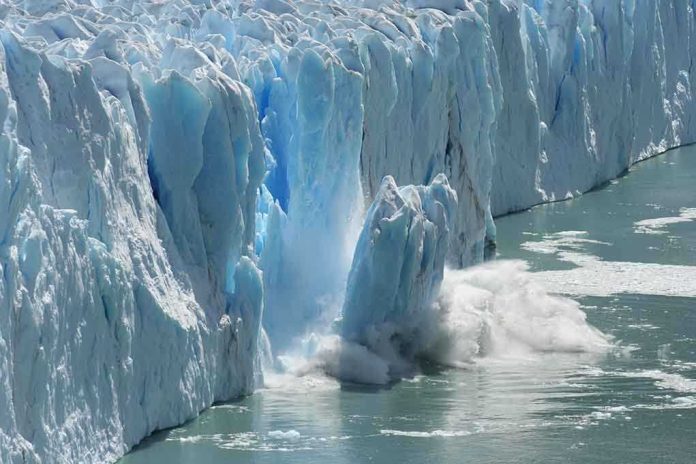
After 66 years beneath Antarctic ice, the remains of British researcher Dennis “Tink” Bell have finally been recovered, delivering long-awaited closure to a family that exemplifies the unsung sacrifices of those who served their nation in the world’s most unforgiving frontier.
Story Highlights
- Dennis Bell’s remains discovered on King George Island after glacier retreat exposed previously ice-covered terrain
- DNA testing confirmed identity through samples from surviving siblings David Bell and Valerie Kelly
- Bell died in July 1959 crevasse accident during dangerous sledging survey for British Antarctic operations
- Discovery highlights risks faced by early polar researchers who advanced British scientific interests with limited technology
Heroic Service Cut Short by Antarctic Tragedy
Dennis “Tink” Bell served as part of the Falkland Islands Dependencies Survey, the predecessor to today’s British Antarctic Survey, during an era when polar fieldwork demanded extraordinary courage. On July 26, 1959, Bell was conducting a geological survey with colleagues Jeff Stokes, Ken Gibson, and Colin Barton using dog sleds across treacherous terrain. When the dogs struggled, Bell courageously moved ahead to encourage them, only to fall through a hidden crevasse bridge. Despite rescue attempts, his teammates could not recover him from the icy depths.
Modern Science Delivers Family Closure
The retreating Ecology Glacier on King George Island exposed Bell’s remains among newly revealed rocks, allowing modern forensic techniques to succeed where 1959 technology failed. DNA testing confirmed the identification through samples from Bell’s surviving siblings, David Bell and Valerie Kelly. David Bell expressed profound gratitude, stating he had “long given up on finding my brother” and calling the discovery “just remarkable.” The identification process involved collaboration between British Antarctic Survey officials, family members, and even a Polish research team operating in the area.
Recognition of Forgotten Sacrifices
British Antarctic Survey Director Professor Dame Jane Francis called the identification a “poignant and profound moment,” emphasizing how it reminds us of the “human stories embedded in the history of Antarctic science.” This discovery honors the contributions of early researchers who advanced British scientific leadership during the Cold War era, when national presence in Antarctica carried strategic importance. The Bell family thanked the British Antarctic Monument Trust for their support, highlighting organizations that preserve the memory of those who served their country in polar regions.
Lessons from an Era of True Exploration
Bell’s story represents the spirit of an age when British explorers pushed boundaries without the safety nets and advanced communications we take for granted today. These men understood that advancing national scientific interests required personal sacrifice and risk. The successful identification also demonstrates how international cooperation in Antarctica—exemplified by the Polish team’s assistance—can honor shared human values while respecting national contributions to polar exploration. As climate change continues to alter Antarctic landscapes, more discoveries may emerge, potentially revealing additional stories of courage and service from this heroic era of British polar research.
Sources:
Remains of Antarctic researcher lost during 1959 expedition found after 65 years



